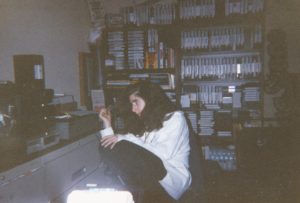 Since May is Mental Health Awareness month, I’m going to share a bit more about one of my struggles and a recent revelation I had about it. Asking for help is one of the hardest things for me to do, but giving help is a driving force in my life and part of my self-identity. I consider being a helper one of my virtues and honestly enjoy being of service, however it is a trait that causes a great deal of anxiety in my life.
Since May is Mental Health Awareness month, I’m going to share a bit more about one of my struggles and a recent revelation I had about it. Asking for help is one of the hardest things for me to do, but giving help is a driving force in my life and part of my self-identity. I consider being a helper one of my virtues and honestly enjoy being of service, however it is a trait that causes a great deal of anxiety in my life.
I attribute this trait to growing up in a family of social workers, doctors, and teachers. My father was often on call. My mother went out of her way to help her clients, even if it interfered with family plans. I got it. I couldn’t resent it because I understood the whys of what they were doing and had compassion for the individuals in need. Even as a bratty teenager, I knew my desire to get home in time to watch a tv show could in no way surpass the need to drop baby formula off to a family without a car (even though it was before VCRs). Any resentment I did feel led to guilt because what they were doing was important and what I wanted generally was not.
Recently during a conversation with a friend about whether or not we were people-pleasers, I articulated my theory about my compulsion to offer assistance with a word that I hadn’t used before, one that both of us remarked on had hit the nail on the head. This is what I said –
I don’t think my motivation is people pleasing, it’s more like if I’m able, I don’t have a right to say no.
I saw helping as a duty – I help because I can. I help because I pathologically put other people’s needs before my own. Saying no with the only reason being I don’t want to only leads to feeling guilty about it for much longer than it would have taken to help, so often it’s just easier to do whatever is asked.
My helping tendencies become a curse because I am still working on my boundary issues and continuously overextend myself at the expense of getting my own things done or trying to stick to a schedule I’ve set. Feeling overwhelmed unfortunately shifts my mood to anger. When I connect the dots, I recognize the anger is fully at myself for not making my own wants and needs a priority.
Articulating my feeling that I don’t have a right to say no explains my anger to me. I don’t like being told what to do. I’m frustrated that I don’t stand up for my needs. I feel trapped.
I’m not looking to stop helping others – I honestly like doing it and it gives me purpose. in doing It’s just never felt like a choice and I need to balance what I say “yes” to with my own My inner voice reminds me I have no rights. I certainly didn’t have rights as a child to my parents attention or time when someone was in crisis. I’m sure if I did put up any fight I lost it and the idea of helping others was reinforced.
I don’t yet know how this new revelation will affect my relationship with my helping issues, but I’m hoping the “have to” feeling dissipates and I will not just intellectually understand that I do have a choice and all my offers of help come from a true desire to do so.
